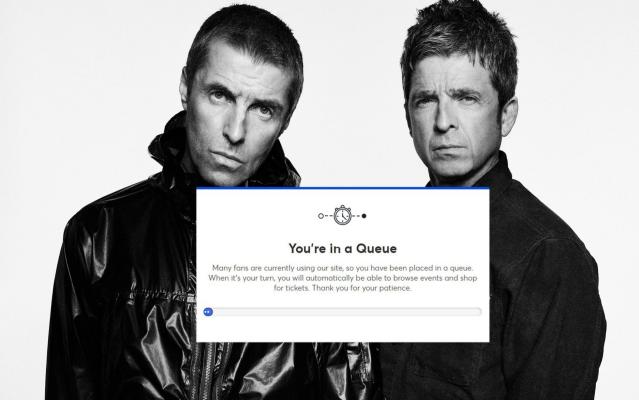Hundreds lodge complaints over Oasis ticket prices
3 min read

Oasis fans have expressed significant dissatisfaction with the pricing of tickets for the band’s highly anticipated reunion tour, prompting a government investigation into the controversial practice of dynamic pricing. This system, which adjusts ticket prices based on demand, saw prices for some tickets soar by over £200 shortly after sales commenced, leaving many fans frustrated and unable to afford the tickets.
The UK government has responded to the outcry by pledging to address the issues surrounding dynamic pricing as part of a broader consultation on ticket resale websites scheduled to begin this autumn. Culture Secretary Lisa Nandy has voiced her concern over the “rip-off resales” and aims to ensure that tickets are sold at “fair prices.” Reports indicate that on Ticketmaster, the cost of certain tickets surged to over £350 from an initial £135, reflecting the impact of dynamic pricing. Ticketmaster explained that these prices were determined by the “event organiser,” who set them based on market value.
Dynamic pricing, while not new, is allowed under current consumer protection laws. However, its application to concert tickets has recently come under scrutiny as some tickets appeared on resale sites for thousands of pounds shortly after their initial release. Nandy criticized the inflated prices for excluding everyday fans from attending the gigs and outlined that the upcoming government review will investigate the transparency and application of dynamic pricing, including how queuing systems might drive up prices.
Lucy Powell, the Leader of the House of Commons, also experienced the effects of dynamic pricing over the weekend, eventually paying more than double the original ticket price for an Oasis show. Powell admitted to BBC Radio 5 Live that while she was not fond of surge pricing, she recognized it as a market mechanism.
The Advertising Standards Authority (ASA) has received approximately 450 complaints alleging that advertisements for the tickets were misleading regarding their cost and availability. An ASA spokesperson confirmed that they are reviewing these complaints but are not currently investigating the advertisements.
Fan reactions have been mixed, with some expressing intense frustration. Jamie Moore, a fan, described his experience with the ticketing website as deeply disappointing. Despite the backlash, Oasis and their promoter have yet to address the complaints directly.
Schellion Horn, a competition economist from Grant Thornton, explained that dynamic pricing aligns ticket prices with supply and demand. According to Horn, the surge in online demand on the first day of sales likely indicated that the initial ticket prices were too low, leading to subsequent price hikes. However, Horn acknowledged that the lack of awareness about dynamic pricing created transparency issues for consumers, who were not expecting such fluctuations for concert tickets.
On the other hand, Jonathan Brown, Chief Executive of the Society of Ticket Agents and Retailers, praised ticketing websites for handling the immense demand for Oasis tickets. Brown maintained that the pricing was set by the band and not by the ticketing platforms.
In response to the situation, Nandy emphasized the need for collaboration among artists, industry professionals, and fans to create a fairer ticketing system that combats ticket touting and ensures fair prices. Prior to becoming Prime Minister, Sir Keir Starmer had supported measures to cap prices for resold tickets and limit the number of tickets that can be resold. In a March speech, Starmer highlighted the need to protect access to culture from being manipulated by unscrupulous ticket touts who drive up prices.
The government’s investigation into dynamic pricing and ticket resales aims to address these issues and restore fairness in the ticketing market.